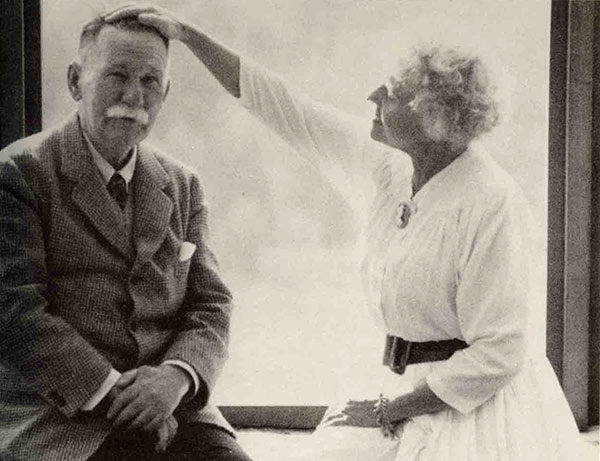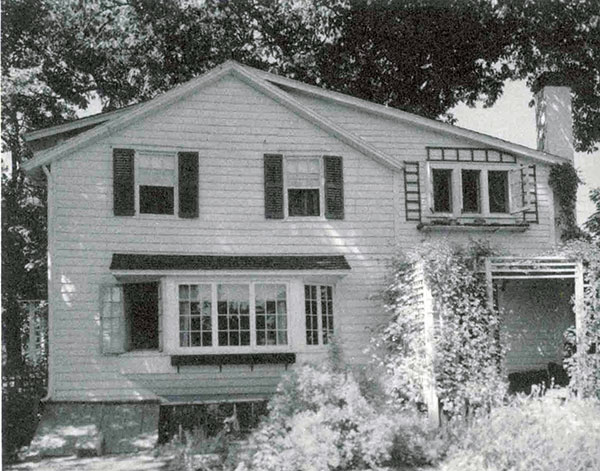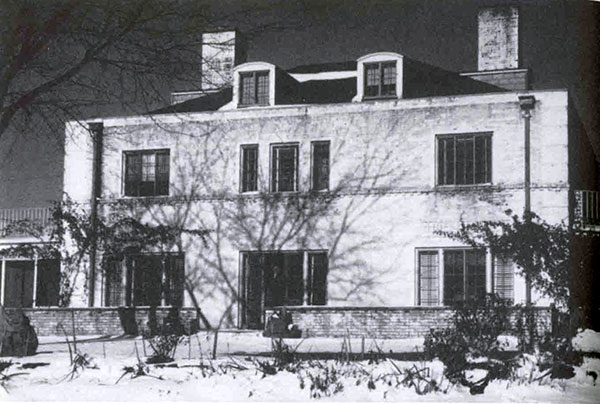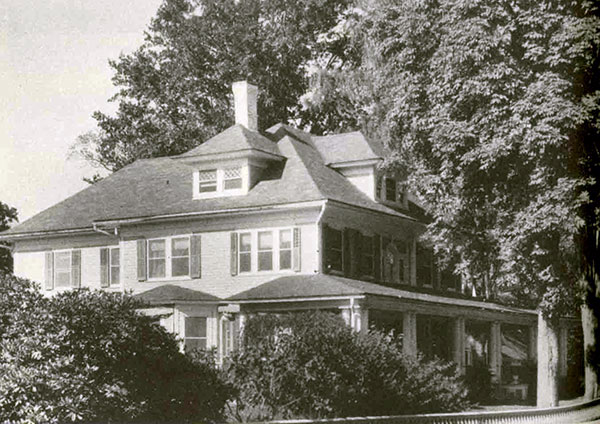
Home Structural Products & Services, Stairlifts
Structural Products & Services, Stairlifts
Furniture, Clocks,
Accessories
Antiques, Folk Art,
Fine Art, Auction Houses
By Max H. Peters |
 Van Wyck and Gladys Brooks |
Scott and Zelda Fitzgerald had left Westport just six months before Van Wyck Brooks and his wife Eleanor bought a house there in 1921. Unlike the Fitzgeralds, who lived there less than a year, partying the whole time, the Brooks settled down in their house Westport for twenty years and raised two boys there.
 Brooks home in Westport |
Van Wyck Brooks was a popular literary critic back in the day before the phrase became a contradiction in terms. The classic idea of the Great Uncle is of a man who shows up periodically in a whirlwind of excitement and regales the family around the dinner table with stirring tales of ancestors in the long-ago. Even if you have never heard of Van Wyck Brooks he is your Great Uncle in the sense that, whenever you are ready, he will pass on to you, through his books The Flowering of New England and New England: Indian Summer, your cultural inheritance as a New Englander. |
You need not be a scholar, as Brooks’ books were written for the general reader. No finer introduction to the living truths of Emerson and Thoreau exists. “It means much,” Brooks wrote, “to feel that one is connected with a living stream of imaginative life…that one is not working in the dark and working alone.”
During the Roaring Twenties, Brooks was concerned that Americans were turning to a “tiresome ideal of sophistication” and looked to a revival of the Concord Transcendentalists to restore the nation’s “lost capacity for wonder.” The past, Brooks believed, “is an inexhaustible storehouse of apt attitudes and adaptable ideals; it opens of itself at the touch of desire; it yields up now this treasure, now that, to anyone who comes to it armed with a capacity for personal choices.”
| The popular success of The Flowering of New England, which won a Pulitzer Prize in 1937, allowed Brooks to build a large Mediterranean-stylehouse in Weston, four miles north of Westport. Eleanor died in 1946. In 1934, with no chance of winning, she had run from Westport as the socialist candidate for the Connecticut Legislature. In 1949, Brooks and his second wife, Gladys, bought a big architectural hodge-podge of a house in Bridgewater, north of Danbury, where Brooks lived until his death in 1963.
Of the Connecticut of his day, Brooks remarked that “one found fashion-designers digging rocks out of streams and laboriously piling them up for a dam and a pool. They lovingly pointed out to friends the iron H-hinges on their doors, the twelve-inch planks on their floors and their cavern-like cellars, and they measured the immense cut stones in border walls along which three men could walk abreast. |
 Brooks home in Weston |
 Brooks home in Bridgewater |
They seemed to draw a secret strength from the old Yankee farmers who had occupied and tilled the land before them, and one met occasionally a survivor on the road who could still speak of the customs and laws of the past. He might answer off-hand, if one asked him what was wrong with some pseudo-colonial house that had just been erected, ‘The ridge-pole’s too high by fourteen inches.’” Van Wyck Brooks believed that by sticking to Emerson’s edict to “Draw out of the past genuine life for the present hour” we would be in the best position to develop what Brooks called “the planetary mind,” the world-consciousness called for if mankind was to survive in the face of the atom bomb.
In April 1962 President Kennedy invited Brooks to a White House dinner for Nobel Prize winners. This is the dinner that Kennedy later famously described as the most extraordinary collection of talent at the White House “with the possible exception of when Thomas Jefferson dined alone.” As they stood in the reception line shaking hands, Kennedy told Brooks that he had read New England: Indian Summer in the hospital recovering from his war wounds.

